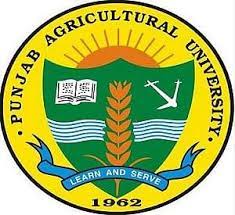Check all admission detailed about COAET Punjab Agricultural University (COAET PAU) Ludhiana, Punjab, courses admission procedure, program eligibility criteria, application form, important dates, how to apply for various courses, cutoff, seats, and fees, etc.
College of Agricultural Engineering And Technology, Punjab Agricultural University Admission Latest Updates
College of Agricultural Engineering And Technology, Punjab Agricultural University, Ludhiana Admission is open for all UG and PG courses for the academic session 2024-25. The application fees depend on the program in which program you want to be admitted. The College of Agricultural Engineering And Technology, Punjab Agricultural University is also accepting applications for Lateral Entry Courses, Online Degree Programs, and Distance Education Courses.
Interested candidates can apply preferred course on the College of Agricultural Engineering And Technology, Punjab Agricultural University official website.
COAET, Ludhiana Admission 2024-25
M.Tech In Civil Engineering Eligibility Criteria
Eligibility criteria for admission to an M.Tech program in Civil Engineering can vary slightly among institutions, but there are common prerequisites that applicants typically need to meet. These requirements ensure that students have a strong foundation in civil engineering and related fields. Here are the general eligibility criteria:
Educational Qualifications: Candidates should have a Bachelor's degree in Civil Engineering or a related field (such as Structural Engineering, Environmental Engineering, or Construction Management) from a recognized university or institution.
Minimum Marks: Many institutions have a minimum marks requirement in the undergraduate degree. The specific percentage may vary, but candidates are generally required to have scored a minimum of 50% to 60% in their bachelor's degree.
Entrance Exams: In many countries, candidates are required to appear for national or university-level entrance exams for M.Tech programs. The admission process often takes into account the scores obtained in these exams. Prominent entrance exams include GATE (Graduate Aptitude Test in Engineering), which is widely accepted for M.Tech admissions in India.
Work Experience: Some M.Tech programs may require candidates to have relevant work experience in the field of civil engineering. This requirement is more common in specialized programs like Construction Management.
Letters of Recommendation: Candidates may be asked to provide letters of recommendation from professors or professionals who can vouch for their academic and professional capabilities.
Statement of Purpose (SOP): Many institutions require applicants to submit a Statement of Purpose outlining their reasons for pursuing the M.Tech program and their career goals.
B.Tech. Eligibility Criteria
The eligibility criteria for B.Tech. in Agricultural Engineering may vary slightly from one institution to another, but generally, the following requirements are standard:
Educational Qualifications: Candidates should have completed their 10+2 (or equivalent) from a recognized board with a strong foundation in science subjects, particularly Physics, Chemistry, and Mathematics (PCM).
Minimum Percentage: Many institutions set a minimum percentage requirement for admission. Typically, students are expected to have scored at least 50-60% in their 10+2 exams. However, some premier institutions may have higher cutoffs.
Entrance Exams: In many countries, students are required to appear for engineering entrance exams such as JEE (Joint Entrance Examination) in India or other relevant national or state-level exams. Admission is often based on the performance in these exams.
Language Proficiency: Proficiency in the English language is essential, as the medium of instruction for most B.Tech. programs in English. Applicants may need to provide proof of English proficiency through tests like TOEFL or IELTS if their primary language is not English.
Age Limit: Some institutions may have age restrictions for admissions, so it's essential to check the specific requirements of the chosen university.
Residency: In some countries, universities may have specific quotas or preferences for residents of the region or country. International students should check the admission policies for foreign students.
Master of Computer Applications (MCA) Eligibility Criteria:
1. Educational Qualifications: To be eligible for an MCA program in India, candidates typically need to have a bachelor's degree in a related field. The most common eligibility criteria include:
• A Bachelor's degree in Computer Applications (BCA)
• A Bachelor's degree in Computer Science
• A Bachelor's degree in Information Technology
• A Bachelor's degree in any discipline with Mathematics as a subject at the 10+2 level or at the undergraduate level.
2. Minimum Marks: Many institutions have a minimum percentage requirement in the qualifying examination, usually in the range of 45% to 60%. However, this requirement can vary from one institution to another.
3. Entrance Exams: Most MCA programs in India require candidates to appear for an entrance examination. The most common entrance exams for MCA admissions include NIMCET, MAH MCA CET, and various state-level MCA entrance tests.
4. Reservation Criteria: Some institutions may have specific reservation criteria for candidates belonging to reserved categories (SC/ST/OBC/PwD). These criteria can vary by institution and are subject to government regulations.
College of Agricultural Engineering And Technology, Punjab Agricultural University, Ludhiana Admission Open 2024-25
College of Agricultural Engineering And Technology, Punjab Agricultural University Admission 2024 is open for all UG and PG courses for the academic session 2024-25. The application fee for College of Agricultural Engineering And Technology, Punjab Agricultural University is INR 1,000 to 2,500 depending on courses that you will choose. College of Agricultural Engineering And Technology, Punjab Agricultural University, Ludhiana Scholarships is also provided to criteria based deserving or qualifying students.
| Particulars | College of Agricultural Engineering And Technology, Punjab Agricultural University, Ludhiana Admission session 2024-25 details |
| Admission Status | Ongoing |
| Application Fees | INR 1,000 – 2,500 (Indian Applicants) |
| Application Form | Online |
| Scholarships offered | Yes |
| Entrance Exams Accepted | PAU Entrance Exam |
| Popular Courses | B.Tech (Agricultural Engineering), M.Tech, Ph.D. |
| Selection Criteria | Entrance-Based and Merit-Based |
College of Agricultural Engineering And Technology, Punjab Agricultural University, Ludhiana Admission 2024-25 is open. To get more details about College of Agricultural Engineering And Technology, Punjab Agricultural University, Ludhiana admission process 2024-25 Session you can go through the below courses:

 Ludhiana, Punjab
Ludhiana, Punjab
 Collage
Collage
 1946
1946
 ICAR
ICAR


 back
back